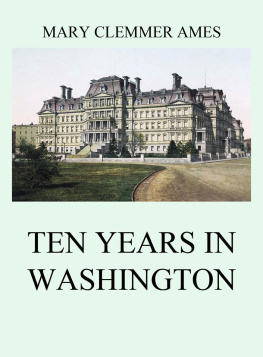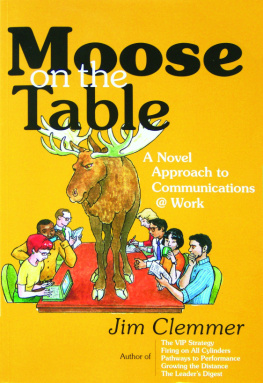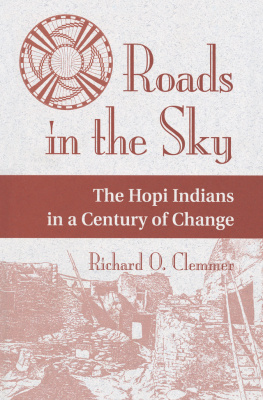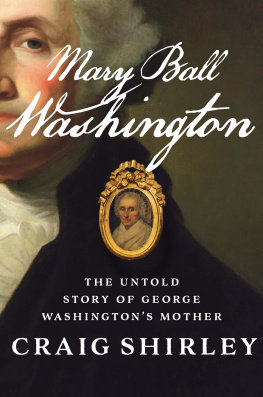CHAPTER I. FROM THE VERY BEGINNING.
MOREthan a century ago a young surveyor, Captain of the Virginia troops, campedwith Braddock's forces upon the hill now occupied by the WashingtonObservatory, looked down as Moses looked from Nebo upon the promised land,until he saw growing before his prophetic sight the city of the future, theCapital of a vast and free people then unborn. This youth was George Washington.The land upon which he gazed was the undreamed of site of the undreamed of cityof the Republic, then to be. This youth, ordained of God to be the Father ofthe Republic, was the prophet of its Capital. He foresaw it, he chose it, heserved it, he loved it; but as a Capital he never entered it.
Gazingfrom the green promontory of Camp Hill, what was the sight of land and waterupon which the youthful surveyor looked down? It was fair to see, so fair thatHumboldt declared after traveling around the earth, that for the site of a citythe entire globe does not hold its equal. On his left rose the wooded bights ofGeorgetown. On his right, the hills of Virginia stretched outward toward theocean. From the luxurious meadows which zoned these hills, the Potomac River named by the Indians Cohonguroton, River of Swans from its source in theAlleghany Mountains, flowing from north-west to south-west, here expanded morethan the width of a mile, and then in concentrated majesty rolled on to meetChesapeake Bay, the river James, and the ocean. South and east, flowing to meetit, came the beautiful Anacostin, now called Eastern Branch, and on the west,winding through its picturesque bluffs, ran the lovely Rock Creek, pouring itsbright waters into the Potomac, under the Heights of Georgetown. At theconfluence of these two rivers, girdled by this bright stream, and encompassedby hills, the young surveyor looked across a broad amphitheater of rollingplain, still covered with native oaks and undergrowth. It was not these he saw.His prescient sight forecast the future. He saw the two majestic rivers bearingupon their waters ships bringing to these green shores the commerce of manynations. He saw the gently climbing hills crowned with villas, and in the steadof oaks and undergrowth, broad streets, a populous city, magnificent buildings,outrivaling the temples of antiquity the Federal City, the Capital of thevast Republic yet to be! The dreary camp, the weary march, privation, cold,hunger, bloodshed, revolution, patient victory at last, all these were to beendured, outlived, before the beautiful Capital of his future was reached? Didthe youth foresee these, also? Many toiling, struggling, suffering yearsbridged the dream of the young surveyor and the first faint dawn of itsfulfillment.
Afterthe Declaration of Independence, before the adoption of the Constitution of theUnited States, its government moved slowly and painfully about on wheels. Asthe exigencies of war demanded, Congress met at Philadelphia, Baltimore,Lancaster, York, Princeton, Annapolis, Trenton, and New York. During thesetroubled years it was the ambition of every infant State to claim the seat ofgovernment. For this purpose New York offered Kingston; Rhode Island, Newport;Maryland, Annapolis; Virginia, Williamsburg.
June 21,1783, Congress was insulted at Philadelphia by a band of mutineers, which theState authorities could not subdue. The body adjourned to Princeton; and thetroubles and trials of its itinerancy caused the subject of a permanentnational seat of government to be taken up and discussed with great vehemencefrom that time till the formation of the Constitution. The resolutions offered,and the votes taken in these debates, indicate that the favored site for thefuture Capital lay somewhere between the banks of the Delaware and the Potomac "near Georgetown," says the most oft-repeated sentence. October 30,1784, the subject was discussed by Congress, at Trenton. A long debate resultedin the appointment of three commissioners, with full power to lay out adistrict not exceeding three, nor less than two miles square, on the banks ofeither side of the Delaware, for a Federal town, with power to buy soil and toenter into contracts for the building of a Federal House, President's house,house for Secretaries, etc.
Notwithstandingthe adoption of this resolution, these Commissioners never entered upon theirduties. Probably the lack of necessary appropriations did not hinder them morethan the incessant attempts made to repeal the act appointing theCommissioners, and to substitute the Potomac for the Delaware, as the site ofthe anticipated Capital. Although the name of President Washington does notappear in these controversies, even then the dream of the young surveyor wastaking on in the President's mind the tangible shape of reality. First, afterthe war for human freedom and the declaration of national independence, was thedesire in the heart of George Washington that the Capital of the new Nationwhose armies he had led to triumph, should rise above the soil of his nativeDominion, upon the banks of the great river where he had foreseen it in hisearly dream. That he used undue influence with the successive Congresses whichdebated and voted on many sites, not the slightest evidence remains, and thenobility of his character forbids the supposition. But the final decisionattests to the prevailing potency of his preferences and wishes, and theimmense pile of correspondence which he has left behind on the subject, provesthat next to the establishment of its independence, was the Capital of theRepublic dear to the heart of George Washington. May 10, 1787, Massachusetts,New York, Virginia and Georgia voted for, and New Jersey, Pennsylvania,Delaware and Maryland against the proposition of Mr. Lee of Virginia, that theBoard of Treasury should take measures for erecting the necessary publicbuildings for the accommodation of Congress, at Georgetown, on the PotomacRiver, as soon as the soil and jurisdiction of said town could be obtained.
Many andfutile were the battles fought by the old Congress, for the site of the futureCapital. These battles doubtless had much to do with Section 8, Article 1, ofthe Constitution of the United States, which declares that Congress shall havepower to exercise exclusive legislation in all cases whatsoever, over suchdistrict (not exceeding ten miles square,) as may, by cession of particularStates and the acceptance of Congress, become the seat of government of theUnited States. This article was assented to by the convention which framed theConstitution, without debate. The adoption of the Constitution was followedspontaneously by most munificent acts on the part of several States. New Yorkappropriated its public buildings to the use of the new government, andCongress met in that city April 6, 1789. On May 15, following, Mr. White fromVirginia, presented to the House of Representatives a resolve of theLegislature of that State, offering to the Federal government ten miles squareof its territory, in any part of that State, which Congress might choose as theseat of the Federal government. The day following, Mr. Seney presented asimilar act from the State of Maryland. Memorials and petitions followed inquick succession from Pennsylvania, New Jersey and Maryland. The resolution ofthe Virginia Legislature begged for the co-operation of Maryland, offering toadvance the sum of one hundred and twenty thousand dollars to the use of thegeneral government toward erecting public buildings, if the Assembly ofMaryland would advance two-fifths of a like sum. Whereupon the Assembly ofVirginia immediately voted to cede the necessary soil, and to provideseventy-two thousand dollars toward the erection of public buildings. "NewYork and Pennsylvania gratuitously furnished elegant and convenientaccommodations for the government" during the eleven years which Congresspassed in their midst, and offered to continue to do the same. The Legislatureof Pennsylvania went further in lavish generosity, and voted a sum of money tobuild a house for the President. The house which it built was lately theUniversity of Pennsylvania. The present White House is considered much tooold-fashioned and shabby to be the suitable abode of the President of theUnited States. A love of ornate display has taken the place of early Republicansimplicity. When George Washington saw the dimensions of the house which thePennsylvanians were building for the President's Mansion, he informed them atonce that he would never occupy it, much less incur the expense of buyingsuitable furniture for it. In those Spartan days it never entered into the headof the State to buy furniture for the "Executive Mansion." Thus theChief Citizen, instead of going into a palace like a satrap, rented and furnisheda modest house belonging to Mr. Robert Morris, in Market street. Meanwhile thegreat battle for the permanent seat of government went on unceasingly among therepresentatives of conflicting States. No modern debate, in length andbitterness, has equaled this of the first Congress under the Constitution.Nearly all agreed that New York was not sufficiently central. There was anintense conflict concerning the relative merits of Philadelphia and Germantown;Havre de Grace and a place called Wright's Ferry, on the Susquehanna; Baltimoreon the Patapsco, and Connogocheague on the Potomac. Mr. Smith proclaimedBaltimore, and the fact that its citizens had subscribed forty thousand dollarsfor public buildings. The South Carolinians cried out against Philadelphiabecause of its majority of Quakers who, they said, were eternally dogging theSouthern members with their schemes of emancipation. Many others ridiculed theproject of building palaces in the woods. Mr. Gerry of Massachusetts declaredthat it was the height of unreasonableness to establish the seat of governmentso far south that it would place nine States out of the thirteen so far northof the National Capital; while Mr. Page protested that New York was superior toany place that he knew for the orderly and decent behavior of its inhabitants,an assertion, sad to say, no longer applicable to the city of New York.









